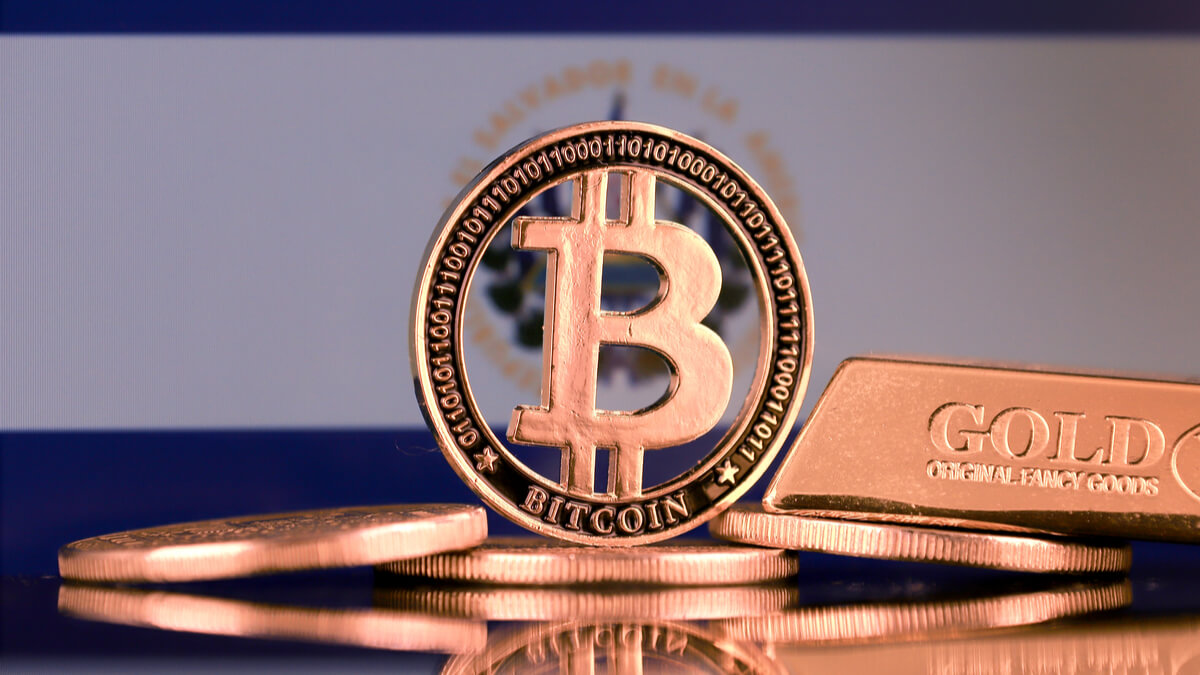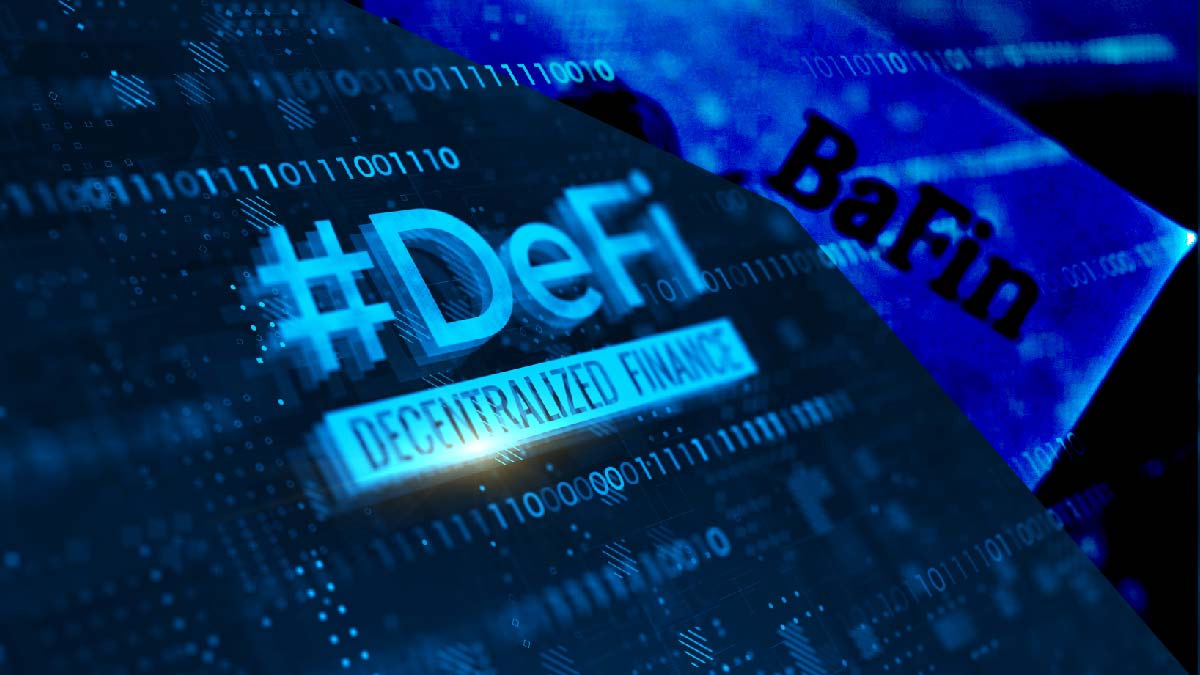Cryptocurrency
El Salvador makes Bitcoin legal tender

El Salvador’s Legislative Assembly has approved legislation making the cryptocurrency Bitcoin legal tender in the country, the first nation to do so, just days after President Nayib Bukele made the proposal at a Bitcoin conference.
The digital currency, originally created to be money out of the control of governments, can be used in any transaction and any business will have to accept payment in Bitcoin, with the exception of those lacking the technology to do so. The U.S. dollar will also continue to be El Salvador’s currency and no one will be forced to pay in Bitcoin, according to the legislation approved late Tuesday.
“Every restaurant, every barber shop, every bank….everything can be paid in U.S. dollars or Bitcoin and nobody can refuse payment,” Bukele said in an hour-long social media hangout with thousands of U.S.-based Bitcoiners as the bill was being debated Tuesday night in El Salvador’s congress.
The exchange rate between the two currencies will be established by the market and all prices will be able to be expressed in Bitcoin — though for accounting purposes, the dollar will continue to be the currency of reference.
The government will promote training for people to be able to carry out transactions using Bitcoin, which has been used for people trading in black markets to avoid government oversight.
The Economy Ministry noted that 70% of Salvadorans do not have access to traditional financial services and it said the country “needs to authorize the circulation of a digital currency who value exclusively follows free market criteria” to stimulate growth.
“The Bitcoin law is ambitious, but simple,” Bukele said on Twitter. “Furthermore it is well structured to have zero risk for those who do not want to take risks. The government will guarantee the convertibility to the exact value in dollars at the moment of the transaction.”
The law would create mechanisms to help Salvadoarans, especially small businesses, quickly convert payments they receive in Bitcoins into dollars — helping them avoid the risk of the value plummeting, as it had in recent days
The legislation established a government fund that will guarantee the automatic convertibility to dollars.
“They have to take the Bitcoin, but they don’t have to take the risk,” Bukele said. “We might earn some money or we might lose some money, but it doesn’t matter. The purpose of the trust fund is not to make money but to support making Bitcoin a legal tender.”
That $150 million fund was the aspect of the legislation drawing immediate attention.
“I don’t know how they’re going to sustain this trust, because if they have all these bitcoins coming in and all these dollars coming out for the Bitcoins, because they’ll be freely interchangeable between the two, that’s going to be a way to clean dirty bitcoins,” said David Gerard, author of “Attack of the 50 Foot Blockchain.” Without very rigid controls on Bitcoin movements and full know-your-customer rules, “they’re going to be a laundromat for money.”
Additionally, Bukele said that anyone who invests three Bitcoin in El Salvador—currently about $105,000— will be entitled to permanent residency.
Bukele said he would discuss his plans with the International Monetary Fund on Thursday. He denied that the move was an attempt to de-dollarize the economy.
“The objectives of having the U.S. dollar as legal tender are replicated on steroids with Bitcoin,” he said. “It’s going to help having both currencies as legal tender.”
The law will take effect 90 days after its official publication. The Central Bank and financial system regulators will publish the implementing rules in the interim.
Bukele’s New Ideas party holds a supermajority in the new congress seated May 1. On its first day it ousted the justices of the Constitutional Chamber of the Supreme Court and then replaced the Attorney General, leading to concerns from the United States and others about Bukele’s concentration of power.
Other countries in the region, including Venezuela and the Bahamas, have introduced digital currencies, though none had adopted the original cryptocurrency, Bitcoin, itself.
Bitcoin, intended as an alternative to government-backed money, is based largely on complex math, data-scrambling cryptography — thus the term “cryptocurrency” — lots of processing power and a distributed global ledger called the blockchain, which records all transactions. No central bank or other institution has any say in its value, which is set entirely by people trading Bitcoins and which has wobbled wildly over time.
Bitcoin and other popular digital currencies, including Ethereum and Dogecoin, all rose on Wednesday according to the tracking site Coindesk. Bitcoin, which climbed above $60,000 early this year, was up 10% to $36,050.
Carlos Carcach, a profesor at El Salvador’s Superior School of Economics and Business, argued that adoption of Bitcoin as legal tender “is not necessary, nor convenient,” though he added, “as long as there is someone who accepts payment with Bitcoin, the same as they accept dollars, there wouldn’t be problems.”
He noted that Bitcoin is extremely volatile, so investors “run the risk of becoming rich and the next day being poor.”
Opposition lawmaker Rodrigo Ávila of the conservative Arena party complained that the legislation was not sufficiently discussed by the Legislative Assembly before passage. There was no testimony from economic or cybercrime experts.
U.S. officials have said Bitcoin was used to pay the ransom in the cyberattack of Colonial Pipeline that caused the operator of the nation’s largest fuel pipeline to halt its operations last month.
El Salvador’s move rekindled memories of the Nov. 30, 2000, decision to dollarize El Salvador’s economy, an action taken in the middle of the night by the Arena-controlled congress.
El Salvador received some $6 billion in remittances from Salvadorans living abroad last year, about 16% of the country’s gross domestic product. Bukele has said Bitcoin could eliminate the costs of sending that money home.
“This is not something for rich people only. It’s for everybody,” said the 39-year-old Bukele, who waxed philosophically about the power of cryptocurrency to loosen the control of central banks and empower young entrepreneurs.
“We build our own future. So why do we have to resign ourselves to a dystopic future?” he said, adding that he’s enjoying the moment without fully understanding the shift in international finance his tiny homeland may have triggered. “This will be a huge gamechanger not for El Salvador but for the world. It’s beautiful to be part of a huge change in humanity.”
SAN SALVADOR, El Salvador (AP) — By MARCOS ALEMAN Associated Press
AP writer Joshua Goodman in Miami and Christopher Sherman in Mexico City contributed to this report.
Blockchain - Cryptocurrency
Is Cryptocurrency Legal in India?

Whether making Cryptocurrency legal in India or not is still up for debate, but the Supreme Court asked the government to be very clear about its position. The national government is drafting a bill to control cryptocurrencies and other digital assets in India. In the Union Budget 2022, Finance Minister Nirmala Sitharaman announced that the federal government would impose a steep tax of 30% on virtual assets, such as cryptocurrencies and Nonfungible Tokens, or NFTs. Budget 2022 suggested creating a new section 115BBH to impose income tax on cryptocurrencies and other virtual assets in order to implement this crypto tax.
Is Cryptocurrency Legal in India?
According to finance minister Nirmala Sitharaman, taxing cryptocurrencies does not make them legal tender in the nation. The nation has the right to impose taxes on cryptocurrency transactions, and these taxes have hit the Indian crypto market hard. The finance minister stated that an official position on regulation wouldn’t be taken until the ongoing consultations were over.
The Directorate of Enforcement (ED) of the nation is making rapid progress with its investigation into any potential foreign exchange.
According to reports, the ED is looking into every aspect of the offshore transactions carried out by the Indian exchanges. The amount of domestic money that left India is being estimated by the Indian authorities, and is a big factor in whether to make Cryptocurrency legal in India or not. Transaction histories and the companies’ involvement with foreign exchanges are hidden from view for that reason.
When an assessee’s total income includes any income from the transfer of virtual digital assets, the proposed section 115BBH seeks to stipulate that the amount of income tax that is due is equal to the sum of the income tax that is due at the rate of 30% on such income and the amount of income tax that would have been due had the assessee’s total income been reduced by the sum of those incomes, according to the Budget 2022 Memorandum.
From Assessment Year 2023–2024, the recently proposed cryptocurrency tax will be in effect. In the upcoming fiscal year (2022–2023), all of your cryptocurrency-related income will be subject to a 30 percent tax rate. For FY 2021–2022, investors must pay taxes in accordance with the current tax regulations.
With this law, the Indian financial authorities have essentially clamped down on the newly emerged financial market due to fear of financial instability, especially given the recent crypto crash.
Prime Minister Narendra Modi stated in November that cryptocurrencies could “spoil our youth” after the central bank had repeatedly warned that cryptocurrencies could pose “serious concerns on macroeconomic and financial stability.”
This view on the dangers of cryptocurrencies comes, ironically enough, despite some pretty impressive statistics, and have been taken into consideration when discussing whether to make Cryptocurrency legal in India.
One of the largest and fastest-growing cryptocurrency markets worldwide is found in India. There are 15 domestic cryptocurrency exchanges in the nation.
According to industry data, there are between 15 and 20 million cryptocurrency owners in India, with estimated holdings worth $6 billion (€5.31 billion).
Despite this, the Indian cryptocurrency market remains under stringent scrutiny that appears to persist for the foreseeable future.
Inside Telecom provides you with an extensive list of content covering all aspects of the tech industry. Keep an eye on our Technology and Blockchain sections to stay informed and up-to-date with our daily articles.
Cryptocurrency
How Facebook’s Cryptocurrency Venture Fell to its Demise

Surely, we all remember that one time when Facebook tried to enter the cryptocurrency world to expand its influence into the decentralized universe of cryptocurrency and blockchain. But those familiar with Facebook’s cryptocurrency venture also know that the dream did not even come close to fruition. Why? Let’s just start by saying many factors led to its unfortunate doomed fate, which was put into question from the get-go, but the main one has to be the project’s failure to secure the satisfaction of federal regulators.
Facebook Crypto Coin
In its first uncovering of its ambitious venture, the initial Facebook cryptocurrency name was Libra, which later on was changed, and the crypto coin was dubbed the name Diem. A term that could mean “carpe diem,” referring to the urge to make the most of the present time and not considering the thought and consequences of the future.
Seems quite fitting, given the project lasted only during its present time, did not see the light of day, and never reached its future endeavors. This can mainly be attributed to the heavy federal discontent of federal regulators and global finance officials, leading to its imminent failure in such a short period of time.
Originally, Facebook’s cryptocurrency venture was announced as a stablecoin with a value pegged to real-world assets, similar to worldly fiat currencies. The Facebook Libra cryptocurrency was intended to be adopted as a basic global currency with sparse fees, playing the role of digital money on your phone, used to pay any purchase supported by cryptocurrency. The overtone of this factor means that if the project had seen the light of day, it would’ve had its own monetary power, placing it in direct competition with the fiat currencies, such as the U.S. dollar. An element that brimmed fear into financial officials, pushing federal regulators to impose some form of authority on the project and its success to prevent any impact on the financial system’s sustainability and the overall control imposed by global central banks over money.
The Duel for Existence
The cryptocurrency of Facebook has been fighting for its existence since day one. Bombarded with deep discontent from the regulatory gaze and central bankers driven by fears that it would endorse illegal endeavors such as money laundering and privacy infringement and present itself as potential competition for global currencies’ sovereignty.
Following the regulatory scrutiny, the Facebook coin Libra was exposed to an endless chain of various ownerships, ending with a wave of migration of many corporate partners and high-level executives. The project, which Facebook’s Chief Executive Officer (CEO) Mark Zuckerberg hoped would change the world’s financial ecosystem, was soon faced with Washington’s rejection, particularly that of the Chair of the Federal Reserve and the Treasury secretary.
From there, the Big Tech giant’s respectable prestige was smeared to the ground during Zuckerberg’s testimony on Capitol Hill as he was playing all his cards to protect the name of the project. Yet the controversies of Facebook breaching Its users’ data privacy, spreading misinformation, and failing to provide robust censorship on its platform affected the stability of the project. Not to mention the fact that some of the biggest financial companies backing the project forsook, such as Mastercard, Visa, and PayPal. Then, followed by the head of Meta’s Cryptocurrency efforts, David Marcus announcement to abandon his responsibilities on the project.
With that in mind, the chain broke, and an overflow of criticism broke unto the project, with U.S. President Joe Biden expressing that he was never really a fan of the social media giant’s CEO and highly ranked Republicans and Democrats voicing their agitation with the Diem project.
Summary
The rippling effect of executives leaving Facebook’s cryptocurrency venture and politicians directing their wrath on the venture’s parent company left the Facebook coin, Libra, in a state of limbo for a while, which eventually led to Its demise. While there were many factors that contributed to its failure, the one thing that accentuated Its doomed fate is that the idea was envisioned by Facebook. The one thing that would’ve contributed to its eminent success, turned out to be the only thing catalyzing Its calamity.
Inside Telecom provides you with an extensive list of content covering all aspects of the tech industry. Keep an eye on our Cybersecurity section to stay informed and up-to-date with our daily articles
Cryptocurrency
German Financial Authority BaFin Calls for Unified DeFi EU Regulation

Executive director of Germany’s Federal Financial Supervisory Authority (BaFin), Birgit Rodolphe, has appealed for novel and comprehensive regulation of the decentralized finance (DeFi) sector across the European Union and to create a consistent DeFi EU regulation.
BaFin is Germany’s financial regulator, in charge of overseeing banks, insurance companies, and other financial organizations, which includes everything related to cryptocurrencies. BaFin is responsible for issuing “crypto custody licenses,” which are essential for companies wishing to provide bitcoin services in Germany.
Rodolphe made a point of the risks presented by an uncontrolled DeFi area to consumers in an article on BaFin’s website, calling for a uniform regulatory framework throughout EU member countries.
“One thing is clear: the clock is ticking. The longer the DeFi market goes unregulated, the greater the risk for consumers, and all the greater is the danger that critical offers that have systemic relevance will establish themselves.” Rodolphe stated.
She listed “technical issues, hacks, and fraudulent activity” as threats to consumers, claiming that DeFi isn’t as “democratic and altruistic” as its proponents believe and that DeFi products and systems are “difficult for many to grasp.” She came to the conclusion that DeFi protocols cannot function outside of rules just because they employ new technologies and claim to be outside the reach of law and governance or believe themselves to be self-governing.
Rodolphe lamented that the deregulated and chaotic DeFi, crypto, and NFT spaces had left many missing their financial livelihood. This is especially true now amid the biggest crash in crypto history that saw otherwise safe financial decisions brought low, with livelihoods lost and DeFi projects abandoned.
It is true that those who lose in the wild west, that is, the crypto market have no one to turn to when things go wrong, when assets disappear, wallets are hacked, or deposits are lost.
She went on to say that lending, borrowing, insurance, and other goods outside of the traditional financial system are all subject to license and supervision in the states where they’re sold, and she urged authorities to establish standards that will give DeFi providers legal certainty.
Rodolphe cited BaFin’s “crypto custody business” license, which allows businesses to provide cryptocurrency services in Germany.
The license was which was launched in January 2020 as an “attractive” regulatory framework for crypto enterprises. Only four crypto service providers have been licensed so far, but numerous financial institutions have applied.
Rodolphe wrote that regulatory systems in different European countries should be the same and help form a unified DeFi EU regulation.
“Ideally, such requirements would of course be uniform throughout the EU in order to prevent a fragmented market and to leverage Europe’s entire innovation potential.” She emphasized.
Rodolphe drew the conclusion that new DeFi laws mustn’t be weaker than the existing standards for traditional financial goods, as this might make DeFi products more appealing to businesses from a regulatory standpoint.























